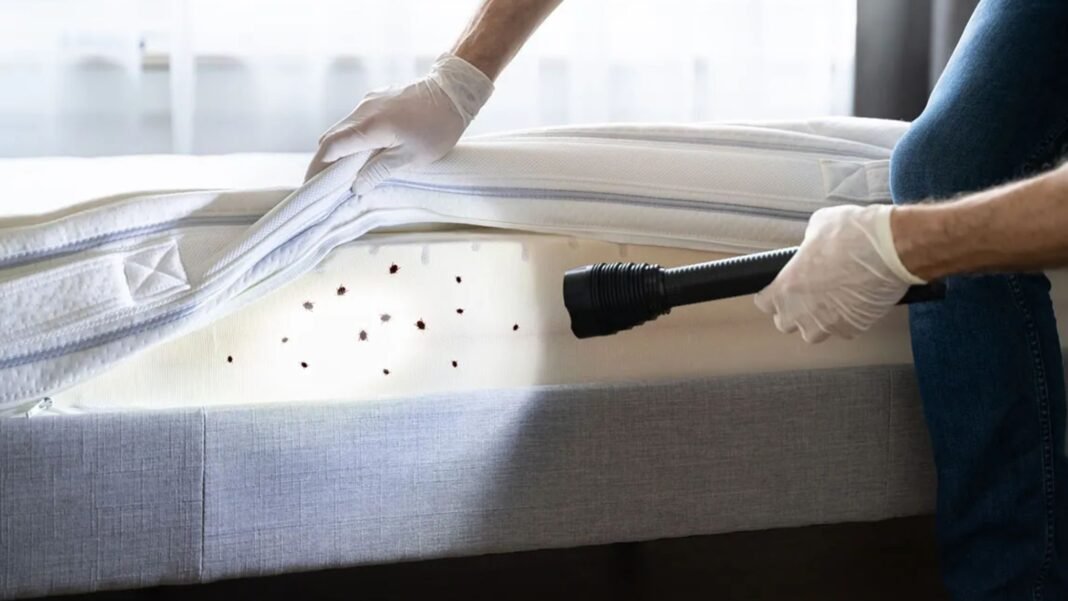Do you wake up feeling tired, stiff, or unrested despite spending enough time in bed? Your mattress could be the silent culprit behind your sleep problems. Many people overlook the impact their mattress has on their sleep quality, but the truth is that an old, uncomfortable, or poorly maintained mattress can wreak havoc on your body and mind.
In this blog, we will explore how your mattress might be destroying your sleep and provide
How Unclean Mattress Impact Sleep Cycle
Mattress is Old
Most people keep their mattresses far longer than they should. Over time, a mattress loses its support, becomes uneven, and collects allergens, dust mites, and bacteria. If your mattress is older than seven to ten years, it may be past its prime.
Signs Your Mattress Needs Replacing:
- Visible sagging or lumps
- Increased allergies or respiratory issues
- Waking up with aches and pains
- Trouble falling or staying asleep
What You Can Do: If your mattress is old and no longer supportive, consider investing in a new one. Look for a mattress that suits your sleeping position and body type for maximum comfort.
Read more about Why You Need Mattress Cleaning & How Your Mattress is Quietly Destroying Your Sleep
It’s the Wrong Type for Your Sleeping Position
Not all mattresses are created equal, and using the wrong type can lead to body pain and restless nights. Different sleeping positions require different levels of firmness for proper spinal alignment.
Choosing the Right Mattress:
- Back Sleepers: Medium-firm mattress for spinal support
- Side Sleepers: Softer mattress to relieve pressure on shoulders and hips
- Stomach Sleepers: Firm mattress to prevent lower back sagging
What You Can Do: Analyze your sleeping position and ensure your mattress provides the right support. If your mattress is too firm or too soft, using a mattress topper can help adjust its comfort level.
Your Mattress is Full of Allergens and Dust Mites
Even if your mattress looks clean, it likely harbors dust mites, bacteria, and other allergens that can disrupt your sleep. These microscopic creatures thrive in warm, humid environments and feed on dead skin cells.
Common Symptoms of Mattress Allergens:
- Frequent sneezing, coughing, or congestion
- Skin irritation or unexplained rashes
- Worsened asthma or breathing problems
What You Can Do:
- Use a mattress protector to shield against allergens
- Wash your bedding weekly in hot water
- Vacuum your mattress regularly
- Consider a professional mattress cleaning service to remove deep-seated dirt and bacteria
Read more about Mattress Cleaning Myths Debunked: What You’ve Been Getting Wrong All This Time
Your Mattress is Trapping Heat
Overheating during sleep can cause night sweats and restlessness, preventing you from reaching deep, restorative sleep. Many mattresses, especially memory foam ones, trap body heat, making you feel uncomfortably warm.
How to Keep Cool While Sleeping:
- Choose a mattress with cooling technology (e.g., gel-infused memory foam)
- Use breathable cotton bedding instead of synthetic materials
- Try a cooling mattress topper
- Keep your bedroom temperature between 60-67°F (15-19°C)
What You Can Do: If your mattress retains too much heat, invest in moisture-wicking and breathable materials to help regulate your temperature for better sleep.
Poor Hygiene and Hidden Germs
Sweat, body oils, and dead skin accumulate on your mattress over time, creating a breeding ground for bacteria and fungi. This can lead to unpleasant odors, skin issues, and even infections.
Tips for Keeping Your Mattress Hygienic:
- Rotate and flip your mattress every 3-6 months
- Use baking soda to neutralize odors
- Avoid eating in bed to prevent spills and stains
- Hire a professional mattress cleaning service at least once a year
Learn about the Hidden Dangers Lurking in Your Mattress and how professional cleaning can help.
Your Mattress Doesn’t Support Your Spine
A bad mattress can lead to back pain, neck pain, and muscle stiffness. If your mattress is too soft, your body will sink in too much, causing spinal misalignment. If it’s too firm, it can put too much pressure on your joints.
Signs Your Mattress is Hurting Your Spine:
- You wake up with lower back pain
- You toss and turn all night
- You feel stiff and sore in the morning
What You Can Do:
- Choose a mattress with good lumbar support
- Use adjustable pillows to maintain proper alignment
- Stretch in the morning to relieve stiffness
Conclusion
Your mattress plays a crucial role in your sleep quality, and a bad one can significantly impact your health and well-being. If you’re experiencing discomfort, allergies, or restless nights, it may be time to reassess your mattress situation.
At Paper and Homes, we bring you the latest trends and expert tips on home improvement, including mattress care, cleaning, and sleep hygiene. Stay updated with our trendy blogs to transform your home into a comfortable and restful space!



